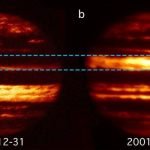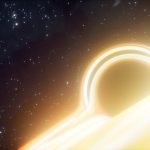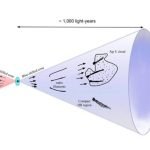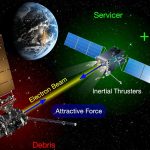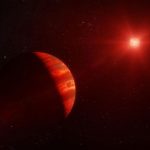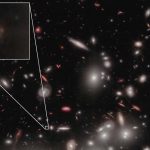Astronomers are searching for a Galaxy-wide transmitter beacon at the center of the Milky...
It has been over sixty years since the first Search for Extraterrestrial Intelligence (SETI) survey occurred.
Giant water plumes on Saturn’s moon Enceladus astonish scientists
Scientists have made an astonishing discovery about one of Saturn's moons, Enceladus, using the powerful James Webb Space Telescope (JWST).
Jupiter’s “stripes” change color. Now we might know why
While Jupiter’s Great Red Spot is one of the most well-known spectacles in the solar system, Jupiter’s clouds and stripes that are responsible for...
Stephen Hawking’s black hole theory gets a universal upgrade
Hawking suggested over a long, long time, black holes would eventually fade away or 'evaporate' due to something he called Hawking radiation.
Scientists reveal mysterious dashes in our Milky Way galaxy’s center
New radio telescope images reveal hundreds of filaments along the galactic plane, each measuring 5 to 10 light-years in length.
These structures likely originated a...
Scientists harness ‘tractor beam’ technology to zap space junk
Imagine two satellites crashing into each other at incredible speeds high above the Siberian Peninsula.
That's what happened on February 10, 2009, when a discarded...
The surprising link between red dwarf stars and alien life: a missing ingredient for...
The dearth of Jupiters suggests that potentially habitable, Earth-like planets might not readily emerge around red dwarf stars.
Scientists confirm the faintest galaxy ever seen in the early universe
After the Big Bang, the universe expanded and cooled sufficiently for hydrogen atoms to form.
In the absence of light from the first stars...
One spacecraft could visit all of Saturn’s inner large moons
If you've ever played Kerbal Space Program, you know how difficult it can be to get your spacecraft into the orbit you want.
It's even...
Why do rocks in the Kuiper Belt come in all colors of the rainbow?...
Imagine our Solar System as a big neighborhood. At the far end of it, just past Neptune's orbit, lies a massive icy zone known as the Kuiper Belt.


